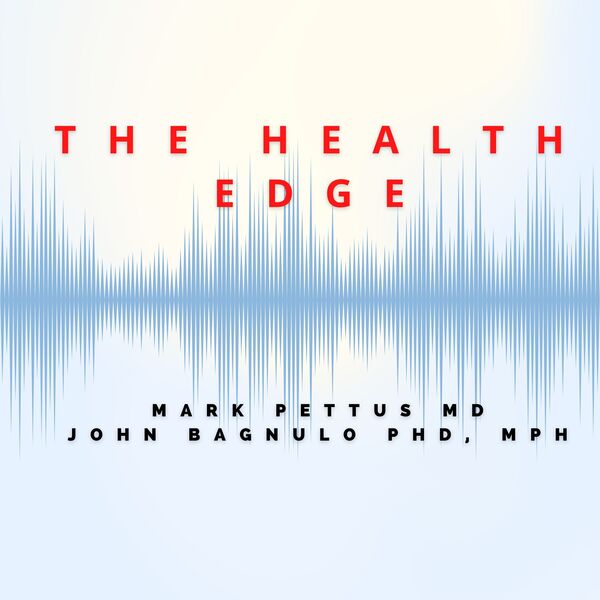In this episode of The Health Edge Mark reviews his top 10 most powerful and evidence-based lifestyle interventions for creating health and reducing disease risk.
The Health Edge: Top 10 Most Powerful (and inexpensive) Lifestyle Interventions
In this episode of The Health Edge Mark reviews his top 10 most powerful (and very inexpensive) lifestyle interventions. These interventions are synergistic in their effects on creating health, reducing disease risk, and in the management of chronic, complex disease.
The Health Edge: Social Connection and Health
In this episode of the Health Edge Mark examines the neurobiologic and molecular mechanisms that translate meaningful and loving social connection with powerful health and longevity outcomes.
The Health Edge: Social Connection and Health
In this episode of The Health Edge Mark examines the research and the mechanisms that link loving, meaningful social connection with health and longevity.
The Health Edge 40: World Health Organization, Red Meat consumption and health
In the is episode of The Health Edge John and Mark reflect on the recent recommendations from The World Health Organization (WHO) as they relate to the health effects of red meat consumption.
The Health Edge 39: Mold Toxicity Syndrome
In this episode of The Health Edge John and Mark explore the relationship between mold exposure from water damaged buildings (WDB) and complex multisystem health challenges that are far more common than appreciated. They explore some of the mechanisms that link mold exposure and biotoxins from WDBs and food sources to chronic systemic inflammation. They conclude with some strategies for testing, remediation and treatment.
Mold Toxicity Syndrome Keith Berndtson MD
http://www.ncbi.nlm.nih.gov/pubmed/20455161
http://www.ncbi.nlm.nih.gov/pubmed/24667314
http://worldcocoafoundation.org/wp-content/files_mf/sanchehervas2008.pdf
The Health Edge 39: Mold Toxicity and Health
In this episode of The Health Edge John and Mark explore the relationship between mold exposure from water damaged buildings (WDB) and complex multisystem health challenges that are far more common than appreciated. They explore some of the mechanisms that link mold exposure and biotoxins from WDBs and food sources to chronic systemic inflammation. They conclude with some strategies for testing, remediation and treatment.
The Health Edge: Microbiome-Gut-Brain Health Part Two
In part two, of this series on the connection between lifestyle, alterations of the microbiome, gut and brain connections and behavioral health, John and Mark examine the literature using fermentable foods and probiotics. In these studies, improvements in mood, anxiety, appetite regulation, cognition, and brain structure-function have been demonstrated. Mark and John summarize lifestyle interventions that can improve behavioral-mental health and allow people to come off or avoid psychtropic drugs, anti-depressants, and anxiolytics.

 Fermented foods, microbiota and mental health
Fermented foods, microbiota and mental health
The Health Edge: Microbiome-Gut-Brain Health
In part two, of this series on the connection between lifestyle, alterations of the microbiome, gut and brain connections and behavioral health, John and Mark examine the literature using fermentable foods and probiotics. In these studies, improvements in mood, anxiety, appetite regulation, cognition, and brain structure-function have been demonstrated. Mark and John summarize lifestyle interventions that can improve behavioral-mental health and allow people to come off or avoid psychtropic drugs, anti-depressants, and anxiolytics.



